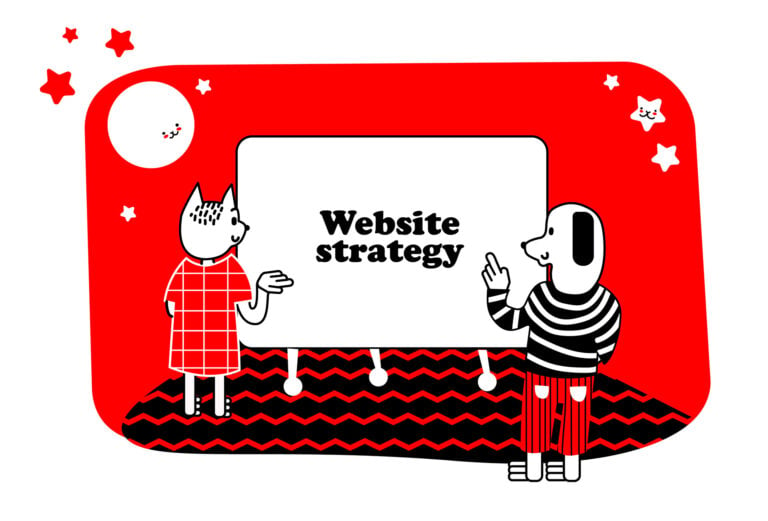Digital transformation projects are often about automating, refining, and improving business processes. Digital transformation is a dynamic process; each project is different. Nevertheless, there are certain elements that come up time and time again – here’s what they are…. and how you can prepare!
What is digital transformation?
Digital transformation in a nutshell = using technology to develop business practices and evolve customer experiences to meet demands in the digital age.
Digital transformation is about levelling up as a business, and it’s worth doing properly.
Firstly, consider what elements of your business need transformation
Think clearly about what elements of your business actually need transformation. You may not need to upgrade to a digital HR platform, but perhaps digitising your editorial workflow could help you save time?
- A digital transformation myth is that digitisation must impact all elements of your business, but a hybrid approach where parts of your business go digital is often more cost-effective.
- Be clear on which business elements would most benefit from automation and data and focus on those. Go where the ROI is high to begin with.
- Be wary of buying off-the-shelf digital transformation software, tools, or packages – they are rarely fit for purpose.
Choose manageable hybrid solutions and technology
Sometimes going all-in isn’t the best way forward.
Most businesses use a variety of digital platforms, tools, and processes to achieve everything they need to do, instead of relying on all-in-one business platforms.
Hybridity is completely normal, and this kind of iterative one-thing-at-a-time approach can help you break down your digital transformation into smaller projects.
- Start with a small project and grow from there to build experience and confidence.
- Embrace integrations and don’t remove old software or processes from the mix unless it’s necessary.
- Even small automation wins can bring a lot of efficiency benefits in the long run.
Benefit from emerging tech
Emerging tech is something that not only startups or big tech companies in Silicon Valley can benefit from: every business can benefit from things like generative AI. (We recently wrote an entire series of AI-related blogs, including details on how AI can help publishers).
- It’s very important to think about the ways in which even the most “out-there” technology can be used for your business. IoT and VR may seem far off for your business strategy right now, but that may not always be the case as consumers embrace this kind of technology in their homes and jobs.
- However, it is important to avoid chasing trends and wasting money on unnecessary things: robotics probably won’t help your agency sell more insurance! Focus your tech research on consumer trends in your industry.
- Set up a working group or a small R&D team who can map out where your business stands to benefit from new tech.
Prepare for cybersecurity and compliance
In our experience, digital transformation projects result in safer and more secure systems, but there is also the other side where having more digital real estate and resources can make you more vulnerable to cyberattacks. Spend time creating a safe and secure digital business environment.
- Digital transformation often happens in the cloud. Cloud services can be vulnerable, so we use systems like Azure that are top-of-the-line when it comes to security.
- You may need new cybersecurity strategies and tools to protect sensitive data and maintain trust with your customers.
- GDPR and privacy laws are another important element you will need to get comfortable with. Have clear policies that you review on a regular basis.
Harness data analytics
Data analytics is one of the most exciting digital transformation benefits. It will allow you to make more informed decisions about your business and even predict the future!
- Operational data can help you spot inefficiencies and scope out business elements you could automate. Balance performance benefits with the feasibility of the tech required.
- As well as tracking trends and behaviours, you can also use analytics to personalise and improve the customer experience, e.g. in the form of personalised offers.
- Predictive analytics helps you anticipate customer needs, forecast market changes, and proactively address potential challenges, allowing for agile planning.
Data insights can drive innovation, disrupt industries, and give companies a competitive edge.
Do it for a better CX (Customer Experience)
Customer experience (CX) should be a crucial driver in digital transformation strategies. Digital commerce strategies are manifold and there is something for every business, so research on how digital can help you create a better customer journey and boost sales.
- Membership portals are a great digital strategy and relatively easy to achieve. Is there a way you could gamify it and create a sense of brand loyalty by offering a rewards system?
- Personalisation is another great digital benefit, especially when it comes to advertising and email marketing.
- Use the data you harness and invest it back into your customer and user experience – streamline your apps, collect user feedback, optimise system performance etc.
Create a digital culture by embracing change management
What often surprises people is that digital transformation is as much about people and hierarchies within the organisation as it is about actual tools and technology.
In fact, sometimes it can feel like the coding part of a digital transformation project is the easy bit, and dealing with people and their expectations and their roles is the challenging thing.
Delve into the strategies and best practices for managing organisational change during digital transformation, including overcoming resistance and fostering employee buy-in.
Your culture is very important too. A lot of the time, organisations are just not set up for digital transformation culturally. Maybe there’s inflexible hierarchies or silos, or just a general lack of agility and flexibility that is needed to push something through.
Here are some ways in which you can foster a digital culture:
- Talk about the anxieties that people have regarding AI and automation. Fearmongering has poisoned some people’s understanding of a digital-first culture. So, by having conversations, you can help challenge that misconception, but it’s also important you listen to their concerns with an open mind. “Efficiency” can be a challenging word for creative teams.
- Show what technology looks like in practice, debunking some myths about AI taking over the world. Focus on real-world scenarios and business cases and explore how tech can help free up people’s time.
- Consider having digital champions within your organisation. There’s going to be a lot of training and disruption to people’s work and by having peer ambassadors, you will help create a more egalitarian approach to digital culture.
What other benefits of digital transformation can you think of? Have you got any lingering thoughts about how you could benefit?






